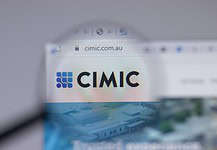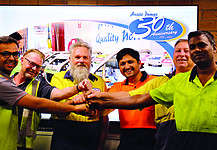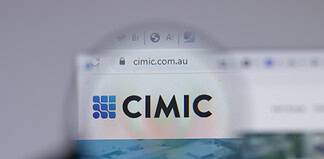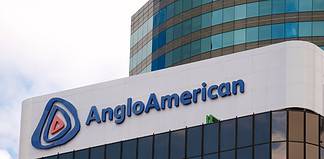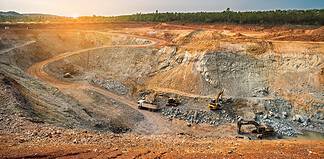Integrated Reliability Solutions has been involved specifically in the management and servicing of lubricants and lubrication systems for the mining, power generation and associated industries since 1987.
The company’s experience and success has been, in part, based on the integration of good lubrication process, innovative system design and commitment to quality client service.
From managing lubrication and fuel assets to productivity improvements, maintenance of hydrocarbons on site and in transport, IRS has a solution to fit specific requirements.
Australian Mining Review spoke to IRS Managing Director Mark Drayton about the company’s products and operations.
Asset management
Mr Drayton stands firmly behind the principle that an integrated approach to plant maintenance is essential for maximum reliability.
“IRS provides a targeted range of specialised services and unique products designed to sustain operational reliability and increase financial returns through improved asset utilisation,” he said.
“Our asset management services focus on achieving cost-effective plant and equipment reliability through the application of leading asset management practices.
“The goal is to ensure that maintenance work is prepared and executed effectively and efficiently, and ensure that essential maintenance work is performed on time, to a plan and to a standard.”
Mr Drayton said achieving these benchmarks had proven to deliver sustainable reliability improvement at the lowest cost over the life of the asset.
“We focus on specific elements of the maintenance business that have demonstrated to reduce costs and maximise asset reliability,” he said.
These include:
- Maintenance process health checks
- Planning and scheduling optimisation
- Maintenance work prioritisation
- Defect elimination
- Operation and maintenance environment reliability threat assessment
- Shutdown management process optimisation
- Material inventory preservation
“We also work with our customers to assist in complex failure investigations to help clients eliminate repeat significant breakdowns of business, critical assets,” Mr Drayton said.
“Our process assists to lead their team through data collection, analysis and solutions development around their lubricant or hydrocarbon related issues.
“All failures tell a story and our methodical analysis process to identify the root cause and helps our customers arrive at an optimum business balanced solution.”
Fuel and lubrication farms
IRS is engaged often by mining companies to provide the necessary infrastructure for fuel and lubrication farms on mine sites.
Mr Drayton said IRS provided installations for a number of major operations within Australia.
As well, it provides a full on-site lubrication service for bulk storage systems.
“Our specialised maintenance and management expertise have been used by the mining, power generation and related industries to enhance production, reduce costs and assist in achieving best practice since 1987,” Mr Drayton said.
He said the design, manufacture and installation of systems extends, but are not restricted to:
- IBC lubrication storage and dispensing
- Oil sampling points and systems
- Filter buggy and filtrations systems
- Lubrication transfer and dispensing equipment systems
- Bulk grease storage, transfer and delivery systems
- Workshop storage, reticulation and dispensing systems
- Bulk fuel filtration and Coalescer systems (see below)
- Bulk oils storage, reticulation, filtrations and dispensing systems
- Magna Drive, “eddy” current coupling drive skids and systems
- Lube service truck design and manufacture
- Oil and grease tanks

“We provide everything right down to the hose reels for dispensing fluids,” Mr Drayton said.
He said the company’s maintenance and preventative maintenance systems had proven to improve fluid cleanliness and maintain dispensing flow rates across the systems.
“We cover many areas,” he said.
“For example, we service tank breathers for moisture and particulate control, as well as pumping drive systems including pumps, reduction gearboxes and motors.
“We check the integrity of tanks, pipes, flanges and joints and flexible hoses, and also test system pump operations.”
IRS has developed its own computerised maintenance management system named LAMS, designed for the management of all project management and service tasks.
“The proprietary system allows us to manage our customers’ maintenance practices autonomously, allowing site personnel to focus on core activities,” Mr Drayton said.
Filtration and flushing
The IRS team in Australia comprises of highly skilled, specialist staff with extensive experience across all industry sectors in the areas of fluid engineering, fluid cleanliness control, and fluid maintenance.
The hydrocarbon and lubricant management systems incorporate a specialised service for turbines, lube oil systems, bulk storage facilities and hydraulic systems.
“IRS owns and maintains a range of oil and fluid filtration systems which we mobilise and perform oil transfer, polishing or flushing nationally,” Mr Drayton said.
“Our systems can filter fluids ranging in viscosity from 3cSt to 1500cSt at speeds of up to 200lpm.
“Our techniques allow us to provide ISO4406 certification on site while we are performing the work, ensuring oil cleanliness targets are achieved during the process.”
Bulk fuel filtration
Bulk fuel cleanliness has become a priority reliability issue for operational mobile and fixed assets.
Excessive water and dirt can reduce the lubrication properties of the fuel, which may cause injector seizure and catastrophic engine failures.
With the further introduction of High Pressure Common Rails (HPCR), fuel cleanliness is absolute to reduce adverse effects of contaminated fuel.
Mr Drayton said that removing free water in fuel significantly reduces or eliminates the growth of Hormoconis Resinae, commonly known as the “diesel fuel bug”.
“These micro-organisms comprise of fungi, yeasts and bacteria which live mostly in the diesel / water interface inside the diesel tank,” he said.
“They can produce large biomass of mycelia (fungal matting) in a short period of time and block filters and injectors.
“IRS provides complete management of bulk fuel facilities that include new facility design, upgrade design, project management, fuel management programs, installation, product supply and complete integrated logistical support. Our systems are design to comply with Australian Standards AS 1940.
“Our solutions have been driven by a growing market need for clean fuel, which, among other benefits, will help to improve overall engine performance, reduce engine operational costs and increase asset availability and production.”
Mr Drayton said that IRS had partnered with global market leading suppliers to ensure that its hydrocarbon management solutions meet current best practices at affordable economic cost.
“We supply standard products and design for common application and have an internal engineering design capability, where we can work to design a solution to meet any customer specific requirements,” he said.
Grease is the word
Contamination in grease and lubrication oils can have a harmful effect on the operating effectiveness of machinery.
By maintaining reasonable fluid cleanliness, end-users can dramatically increase the life of critical wear components on rotational equipment, minimising downtime and maximising profitability. 
Mr Drayton said IRS supplied effective and durable high-pressure grease filters, which employ Wedge wire filter media to deliver positive protection against contamination, leading to predictable reliability for hydraulic systems and components.
“Our solutions have been developed as a result of observing many issues which arise from grease contamination, such as unnecessary downtime for equipment and machinery, the blockage of the grease system, and premature failure in pumps, injectors, gears, bearings, etc.”
IRS incorporated many innovative elements in the design of its high pressure gear filters.
These include:
- Reducing time to change filter
- Large filter surface area
- Compact and versatile design
- Tough stainless steel filter element to extend life span
- Zinc plated hard wearing filter housing exterior for harsh environments
- Three sizes of filter housing
Oil filter trolley
Mr Drayton said off-line filtration of the lubricant during equipment operation is the preferred method in removal of solid contaminants from most operating systems and or compartments.
This technique is preferred over draining and replenishment, as no downtime is experienced while the equipment remains operational, significantly reducing lubricant purchases and waste removal.
“Our filter systems comply with AS1940 in order to meet OH&S and environmental requirements under Federal law, and we tailor design modules to meet the individual needs or our broad customer base,” Mr Drayton said.
“Our filter trolley solutions have been developed as a result years of working with industry and observing some the issues with conventional methods for the operator in dispensing fluids.
“Our trolleys have a mobile bypass filtration for hydraulic and lubricating systems, an efficient pumping system, along with a narrow unit profile for easier access to confined spaces.
“There are also high performance contamination absorption, a robust feed pump.”
The design of the trolley, while adhering to standards, is also flexible, which allows for customisation to colour and fluid requirements.
The drip tray can be adjusted to a stationary or reclined position, while filters are easy to change and service.
Reeling in the problems
As dispensing infrastructure is established further away from traditional workshops and service areas, the dispensing equipment may not be installed adequately or maintained to an appropriate standard.
IRS has for many years been assisting operators in the area to dispense fluids in a safe and manageable environment, whilst complying with Australian Standards AS1940. 
“Some common problems are damaged hoses from misuse and damaged dispensing nozzles, hose reel failure and uncontrolled movement whilst retracting, difficulty of use and safety issues with pulling out the hose from the reels,” Mr Drayton said.
IRS-designed equipment is made to assist operators to maintain safe housekeeping and increase hose and nozzle life.
They include a breakaway valve for control of minor spills as well as features which increase fluid flow and ease of use, such as greaseable rollers and swivels, breakaway couplings, heavy duty construction, and swaged counterweight cable ends.
QDS service pods
The increasing demand from underground mining for fluid cleanliness, filtering, storage and dispensing has led IRS to produce a range of QDS pods to address this growing demand.
The IRS-manufactured QDS pods are designed to increase fluid cleanliness levels, prevent overfill and moisture ingress to storage systems and are suitable for underground conditions.
Some of its features include a 1700L spill retention bund, a non-metallic air service unit (filter, regulator and lubricator), a pressure bleed-down valve with filter clogging indicators, and storage for two grades of oil, totalling 1200l, and 900 l of waste oil.
The hose assemblies are built to crimped hydraulic assemblies and the delivery hoses are fitted with ¾” BSP nipples.
Remote service area dispensers
IRS has also catered to the increasing demand for Industry to provide solutions for the storage and dispensing of fuelling, lubricants, coolants and grease in remote areas.
“Equipment in these areas are subject to many problems,” Mr Drayton said.
“They can include non-compliance with Australian Standards, inadequate fluid cleanliness and filtration, air cleanliness and ingress issues to storage systems, and harsh weather and environmental conditions.”
IRS incorporates many clever features in its designs, such as compliance with Australian standards, tank air cleanliness, tank overfill protection, dispensing options (counter-weighted tower or hose reels), and flush face dry break couplers on fill and dispensing.
Service bay dispensers
Increased demands on Industry to improve manual handling, oil/fluid cleanliness and reduce service time intervals has seen a progressive shift from dispensing from packaged product to dispensing from bulk containers via a fixed dispensing network throughout workshop facilities.
“Industry standards indicate that every time you transfer fluids from one compartment to the next you increase the dirt content by one code/level,” Mr Drayton said.
“Progressive operators are now decreasing the number of transfers by pumping fluids direct from bulk containers into the engine and gearbox compartments.”
IRS-designed dispensers comply to Australian standards, reduce fluid spillage from transferring from drums, while eliminating the need for storage of drums in workshops.
“There is reduced residual fluids left in drums, leading to improved fluid cleanliness and housekeeping, and reducing manual handling injuries,” Mr Drayton said.
IRS designs its storage systems to suit customers’ specific needs.
They can include:
- IBC, single or double stacked systems
- 500, 1000 and 2000 litre SWF tanks
- 1000, 2000 and 10,000 litre doubled skin self-bunded tanks
IRS can also maintain a number of hose reels in a restricted foot print, standardise hose reels and hose sizing and provide batch meters for precise measurement of volumes. 
Lubrication methodology
Mr Drayton concludes by pointing out that between 80–90% of all condition monitoring reports identify lack of lubrication as the primary root cause of a defect.
“Our goal has been to ensure that all rotating and sliding elements are adequately lubricated, which in turn allows maintenance practitioners to focus on the root cause of defects in addition to identifying the symptoms,” Mr Drayton said.
“While industry has begun to grasp and benefit from better lubrication practices, we believe that in order to fully understand the potential of plant reliability we need to “get the basics right”.
“By starting at the beginning, we establish the foundation from which reliability centred maintenance system can begin to develop.
“We work from the position that any equipment failure is unacceptable, and plant owners must take every step to ensure that components do not fail prematurely due to lack of lubricant or lubrication related issues.”
To ensure maximum equipment life, IRS has adopted some fundamental philosophies to ensure this is achieved, such as the “Six R’s of Lubrication”:
- Right Product
- Right Timing
- Right Place
- Right Amount
- Right Equipment
- Right Attitude
“Attitude is the human element of the equation, and without the right attitude, the first five points may not be relevant,” Mr Drayton said.
More information:
Integrated Reliability Solutions
Email: [email protected]
Website: www.lubrication.com.au
Phone: (02) 4903 8900



